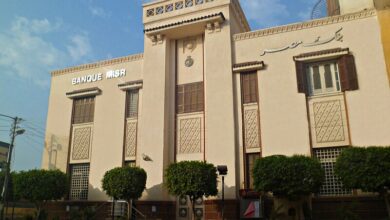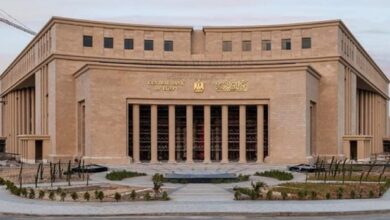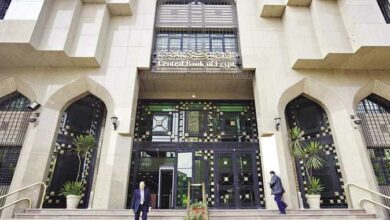
CAIRO, March 3 (Reuters) – Egypt aims to sell a minority stake in state-owned Banque du Caire in an initial public offering (IPO) starting mid-April in a sale worth about $500 million, provided investor interest holds up in the face of the coronavirus, its chairman said.
It would be Egypt’s biggest sale of state assets since 2006. The bank is part of a revived programme of selling shares in a long list of state companies that was announced three years ago but has faced repeated delays.
“Our plan is to go with the IPO by mid-April, but it depends on the market conditions. For us, if you’re talking about the readiness of the bank, we are very ready,” Chairman Tarek Fayed said in an interview.
“Definitely, lots of stuff has been evolving in the last two weeks, the coronavirus,” Fayed said, but he also said that during a trip overseas last week he found continued investor interest. “The appetite is still strong. But nobody knows what could happen in the next 10 to 15 days.”
Fayed said he was in discussions with a couple of cornerstone investors who would be guaranteed participation to strengthen the offer. Multilateral development institutions would also be involved at an early stage.
“The programme allows us to go up to 45 percent. But the main objective is to raise funds in the vicinity of $500 million. So if we translate the $500 million into a percentage this could leave us in the range of 20 percent to 30 percent of the float of the bank’s ownership,” Fayed said.
Of this, $50 million to $75 million would be sold to one or more anchor investors, Fayed said.
Banque du Caire is owned by state-owned Banque Misr, which in the mid-2000s took over Banque du Caire’s nonperforming loans in exchange for assets.
With assets of 183.4 billion Egyptian pounds ($11.70 billion) at the end of 2019, Banque du Caire ranks sixth or seventh among Egyptian banks.
STOCK EXCHANGE BOOST
Fayed said the sale would be a spur to the Egyptian stock exchange, where activity has dwindled in the past few years.
Egypt in 2008 came close to selling Banque du Caire to the National Bank of Greece, but the deal never closed, partly because of a backlash against privatisations.
The last sale of state assets on a similar or larger scale was in 2006, when Italy’s Intesa Sanpaolo bought 80 percent of Bank of Alexandria for $1.6 billion.
A former Citibank employee, Fayed worked for a decade at Egypt’s central bank where he oversaw banking supervision and financial stability before taking over as Banque du Caire’s chairman and CEO in January 2018.
“When we came, myself, a new board, and new management team, we came up with a totally different approach,” he said.
Fayed said his strategy had been to take advantage the high liquidity in Egypt’s banking system and Banque du Caire itself by tapping different lending activities and expanding products.
The bank doubled its corporate book in the last two years to more than 40 billion Egyptian pounds and increased its number of corporate clients to more than 400 from 170.
It also expanded its profitable microfinance business, in which Banque du Caire’s 300,000 clients account for 25 percent of the Egyptian microfinance market, where margins can reach 16 percent.
The new strategy has been paying off. The bank said net profit jumped 60 percent in 2019 to 79.2 billion pounds. ($1 = 15.6700 Egyptian pounds) (Reporting by Patrick Werr Editing by Aidan Lewis and Jane Merriman)




